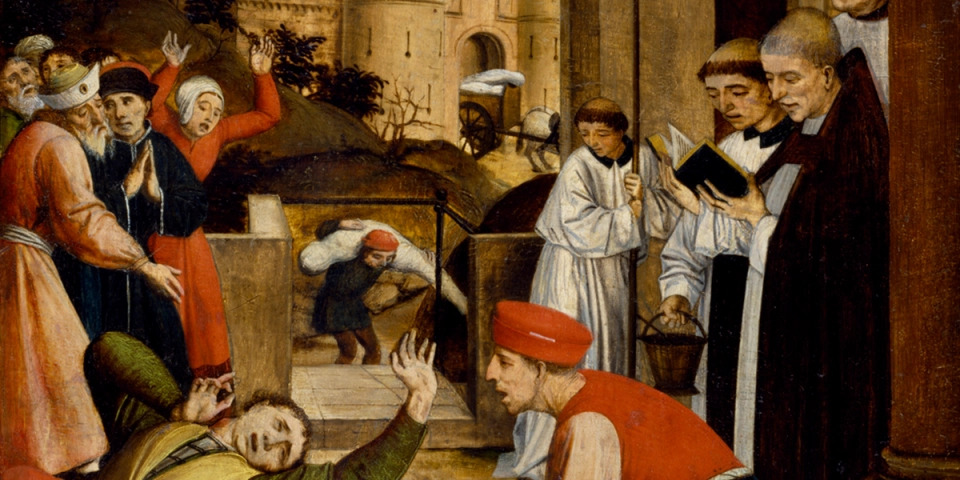The revolutionary mission of the medieval hospital

Medieval hospitals offered healthcare, shelter, and food to travelers, pilgrims, and the poor alike. They were, in the full sense of the word, hospitable institutions established by the Church and supported by local and imperial authorities.
The “golden age” of medieval hospitals, Lucie Laumonier explains, came about during the so-called “charitable revolution” of the High Middle Ages, an important turning point “in the ways ordinary people thought about and acted toward their needy neighbors.”
When mendicant friars (mainly Franciscans and Dominicans, but also the Hospitallers) took on vows of poverty as a way to imitate Christ, those who were involuntarily poor were seen differently: They provided the most fortunate with an opportunity to get involved in charitable work, penitential acts of almsgiving, and to be (literally) hospitable.





